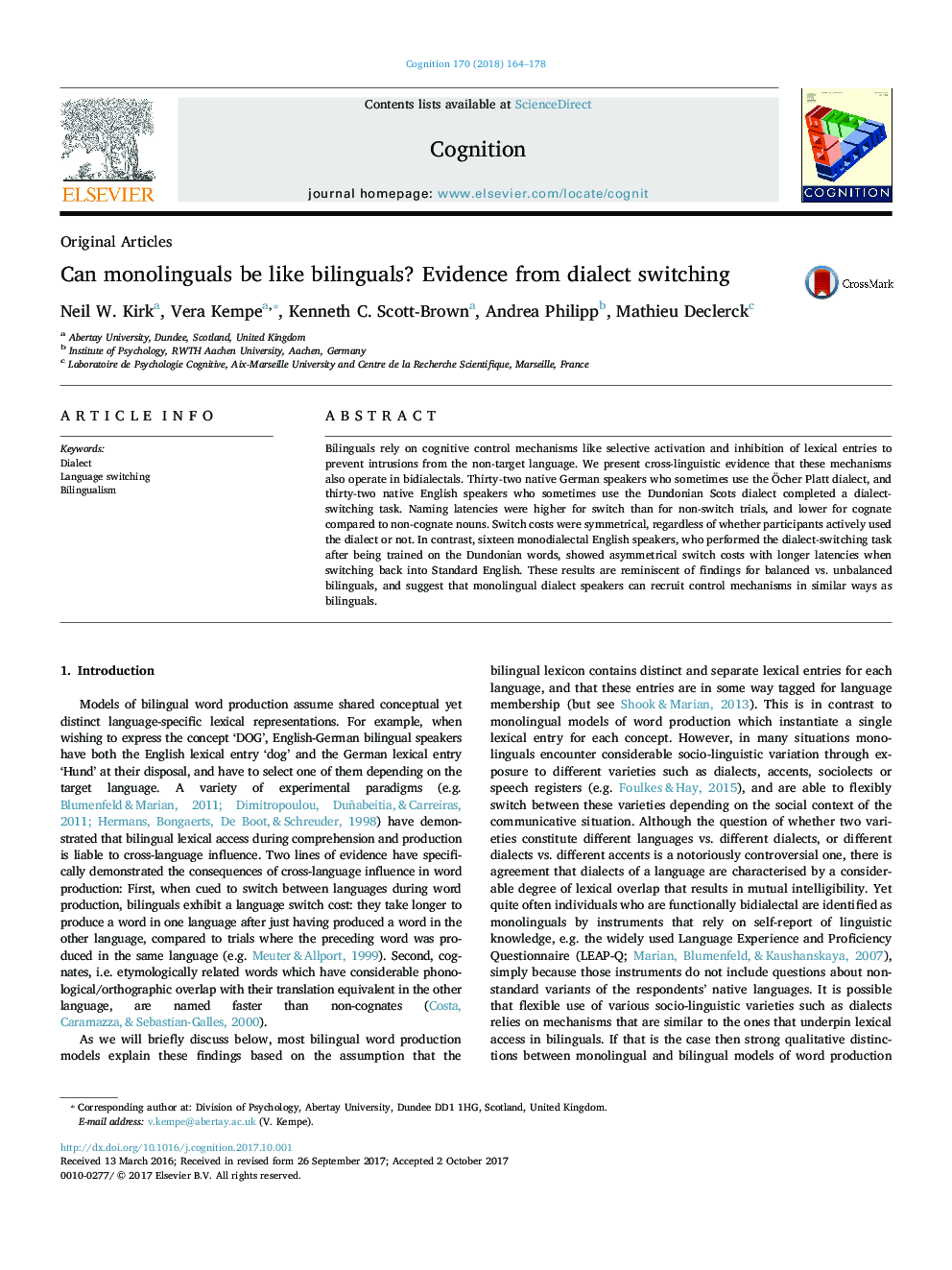| Article ID | Journal | Published Year | Pages | File Type |
|---|---|---|---|---|
| 5041408 | Cognition | 2018 | 15 Pages |
Bilinguals rely on cognitive control mechanisms like selective activation and inhibition of lexical entries to prevent intrusions from the non-target language. We present cross-linguistic evidence that these mechanisms also operate in bidialectals. Thirty-two native German speakers who sometimes use the Ãcher Platt dialect, and thirty-two native English speakers who sometimes use the Dundonian Scots dialect completed a dialect-switching task. Naming latencies were higher for switch than for non-switch trials, and lower for cognate compared to non-cognate nouns. Switch costs were symmetrical, regardless of whether participants actively used the dialect or not. In contrast, sixteen monodialectal English speakers, who performed the dialect-switching task after being trained on the Dundonian words, showed asymmetrical switch costs with longer latencies when switching back into Standard English. These results are reminiscent of findings for balanced vs. unbalanced bilinguals, and suggest that monolingual dialect speakers can recruit control mechanisms in similar ways as bilinguals.
